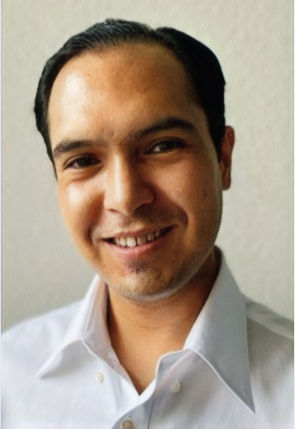SMART Collaborative Research Stories: Critical Analytics for Manufacturing Personalized-medicine (CAMP) and Nanyang Technological University Singapore (NTU Singapore)
- SMART

- Apr 23, 2024
- 3 min read
Updated: Jun 13, 2024
The field of cell therapy is undergoing a surge in progress, primarily driven by the transformative power of collaboration. By uniting diverse areas of expertise and scientific fields through interdisciplinary and collaborative research, researchers can overcome these complex challenges and accelerate scientific breakthroughs.
In this series, we delve into SMART’s collaborations with other research and academic institutions in Singapore, shedding light on their experiences and the importance of collaboration in research. This feature showcases the synergistic partnership between SMART Critical Analytics for Manufacturing Personalized-medicine (CAMP) and Nanyang Technological University Singapore (NTU), a partnership that has birthed multiple breakthroughs in cell therapy.
CAMP is at the forefront of personalised medicine - advancing cell-based therapies, enhancing production methods and expanding access to treatments. Through innovation in Critical Quality Attributes (CQA) and Process Analytic Technologies (PAT), CAMP’s research endeavours to develop cell therapies for a wide range of ailments, from cancer to tissue degeneration. Pioneering innovative cell therapy production technologies, it unlocks the therapeutic potential of personalised cell therapy across various medical conditions, focusing on preparing and manipulating a patient's own healthy cells and developing highly targeted therapies, promising more effective solutions than conventional treatments.
One notable research project stemming from this collaboration is the ScaNCellS project, which is dedicated to developing a neural cell implantation therapy for spinal cord injuries treatment that is safe, efficacious and reproducible. The collaboration with NTU, with its expertise in neural tissue engineering, biomaterials and testing, enriches CAMP's research efforts. NTU contributed to the research with the development of scaffolds, which allow for the neural cells to sit and grow within. Together, they advance the research by testing the technologies using animal models, a crucial step for validation and refinement on the long road to commercialisation.

Image of Dr Daniel Roxby, Senior Postdoctoral Associate at SMART CAMP
“NTU's pivotal contributions include designing scaffolds to support neural cell growth and proliferation, which are subsequently implanted into rats for further investigation, highlighting the crucial role of scaffolds in the project,” Dr Daniel Roxby, Senior Postdoctoral Associate at SMART CAMP, elaborated. “While CAMP employs its technologies to characterise cells and isolate the healthy ones, the scaffolds provide a conducive environment and platform for their growth to facilitate spinal cord repair once implanted."

Chew Sing Yian, Professor at Nanyang Technological University Singapore
"Collaborating with SMART and CAMP has been very helpful for our research at NTU," says Chew Sing Yian, Principal Investigator at SMART CAMP and Professor at Nanyang Technological University (NTU) Singapore. "Their expertise in engineering methods for cell profiling complements our work in cell transplantation, significantly bolstering our capabilities and enhancing the scope of our research. Working with CAMP, we contribute by providing essential in vitro and in vivo models to test the efficacy of their cell sorting methods. This collaborative effort between our organisations enhances our research and strengthens the foundation for groundbreaking advancements in the field."
Since the project's inception, a start-up-like approach has been embraced, with weekly Zoom meetings involving the entire team. The researchers address different project segments each week, followed by critically analysing the presented data. This approach allows the team to generate a well-rounded perspective on project updates, given the diverse backgrounds of contributors, including biologists from A*STAR, cell manufacturing experts from SMART CAMP, researchers specialising in scaffolds and biomaterials from the French National Centre for Scientific Research (CNRS)’s first overseas subsidiary, CNRS@Create, and those focused on animal work at NTU.
Additionally, the collaborative environment fosters knowledge exchange and allows the researchers to leverage each other's expertise and resources. For instance, researchers consult A*STAR on cell quality assessments and coordinate visits to NTU’s facilities for bioreactor experiments and animal testing.

SMART and NTU researchers and PI from A*Star and CNRS@CREATE meeting over lunch
The collaboration between SMART CAMP and NTU demonstrates the transformative potential of inter-organisational and interdisciplinary collaboration, enabling the exploration of new frontiers in scientific discovery by leveraging diverse expertise and resources to drive scientific progress.




Comments